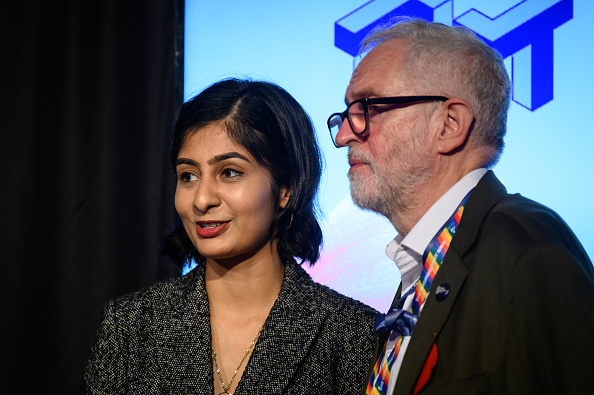MP Zara Sultana has declared “loudly and proudly” that she is anti-Zionist following her comments reflecting on the rise and shortcomings of Corbynism.
In an interview with New Left Review published over the weekend, she praised the movement’s energy and mass appeal but said Jeremy Corbyn ‘capitulated’ to the International Holocaust Remembrance Alliance’s (IHRA) definition of antisemitism, which she argues conflates antisemitism with criticism of Zionism.
Sultana and Corbyn recently announced plans for a new political movement that they say will change British politics and take a principled stand on issues such as Gaza.
The new party doesn’t exist yet, but it has already scored above 10% in several public opinion polls and received more than 800,000 sign-ups.
In the interview, Sultana gave insights into her vision for the new party and made it clear that she wanted to distinguish it from Corbyn’s leadership of Labour.
She was careful not to attack Corbyn personally but criticised the party machinery under his leadership.
Responding to comments from right-wing media outlets, Sultana said the smears “won’t work this time”, adding that she is an anti-Zionist.
The smears won’t work this time.
— Zarah Sultana MP (@zarahsultana) August 17, 2025
I say it loudly and proudly: I’m an anti-Zionist.
Print that. https://t.co/HSZAWnO4cJ
Responding to an accusation of antisemitism on social media, she demanded the post be deleted and warned: “You better lawyer up.” The tweet was taken down.
Delete and apologise, otherwise you better lawyer up.
— Zarah Sultana MP (@zarahsultana) August 18, 2025
Anti-Zionism is not Antisemitism.
The smears won’t work this time. https://t.co/xjs1MMCryr
Highs and lows of Corbynism
In the interview, Sultana said: “We have to build on the strengths of Corbynism – its energy, mass appeal and bold policy platform – and we also have to recognise its limitations.
“It capitulated to the IHRA definition of antisemitism, which famously equates it with anti-Zionism, and which even its lead author Kenneth Stern has now publicly criticised.”
Stern, one of the original drafters of the definition, has criticised its use to stifle debate, arguing that “anti-Zionists have a right to free expression.”
Sultana said Labour under Corbyn had been “frightened and far too conciliatory” in the face of state and media hostility.
She said Corbynism “didn’t make a real effort to channel its mass membership into the labour movement or tenants unions, which would have enriched the party’s social base”.
She continued: “When it came under attack from the state and the media, it should have fought back, recognising that these are our class enemies. But instead it was frightened and far too conciliatory.”












